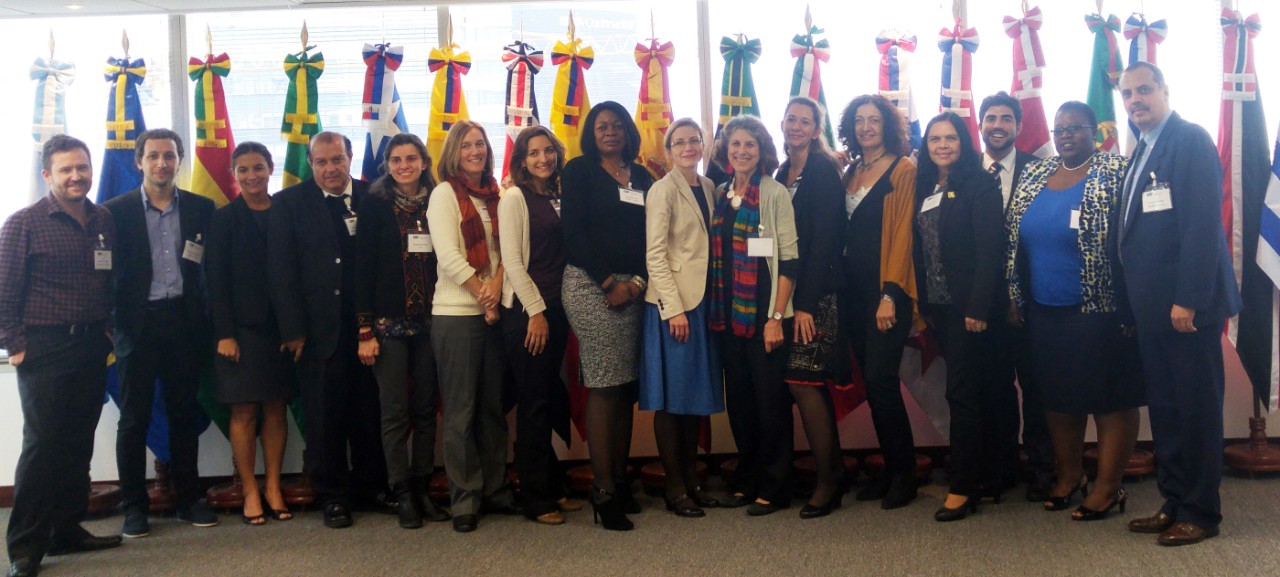
Lombe and fellow members of the United Nation’s Policy Unit 1 in Lima, Peru.
BCSSW Associate Professor Margaret Lombe joined 20 other academics, non-profit executives, and social activists in Lima, Peru this past month as part of an initiative convened by the United Nations to make recommendations on creating more inclusive cities across the world.
The group, called Policy Unit 1 and consisting of individuals representing most of the world’s continents, is tasked with producing a preliminary policy document to be presented to the UN’s General Assembly this spring. Following feedback from the UN’s member states, Policy Unit 1 will report its final recommendations at Habitat III, the UN’s Conference on Housing and Sustainable Urban Development in Quito, Ecuador next October.
Lombe is uniquely qualified to play an important role in this conversation: her area of expertise is international social development, with an emphasis on social inclusion/exclusion and capacity building. She also has a strong history working with the UN — in 2010, she prepared a report for UN-Habitat entitled Measuring and Monitoring Urban Social Inclusion: Challenges and Way Forward.
Early conversations within Policy Unit 1 have surrounded the question, “who has the right to the city?”, while viewing the city in its current state as a contested space. Despite a history long-accompanied by realities of diversity, difference has become more and more exclusionary in the recent accounting of global urban life. The recent influx of immigrants from Syria and Northern Africa into European cities, for example, has caused many Europeans to rethink their own identity. In some cases, conservative politicians have employed anti-immigrant rhetoric in campaigns for public office.
“This is certainly an opportune time to be having this conversation,” explains Lombe. “As the world’s refugee population grows, and cities across the globe consider welcoming individuals from foreign lands in search of a better life, it makes critical sense to try and measure how successful we are at justly integrating our neighbor. My hope is that, through this process, we can establish models moving forward to help us to do this better.”
Lombe is focusing much of her input to Policy Unit 1 on the current realities of social exclusion and inclusion, and issues of identity, and how factors such as gender, age, and religion affect the individual’s place and role in urban life.
She hopes to define methodologies to support positive concepts of the neighborhood. “If we can encourage more people to realize that it is ok to get to know the other who is living nearby, we can create more compassionate, inclusive communities that benefit all who live within them.”
Stay tuned to Innovate@BCSW for updates on Lombe’s work with the UN throughout the year to come.

